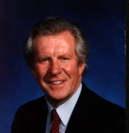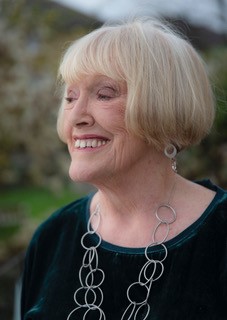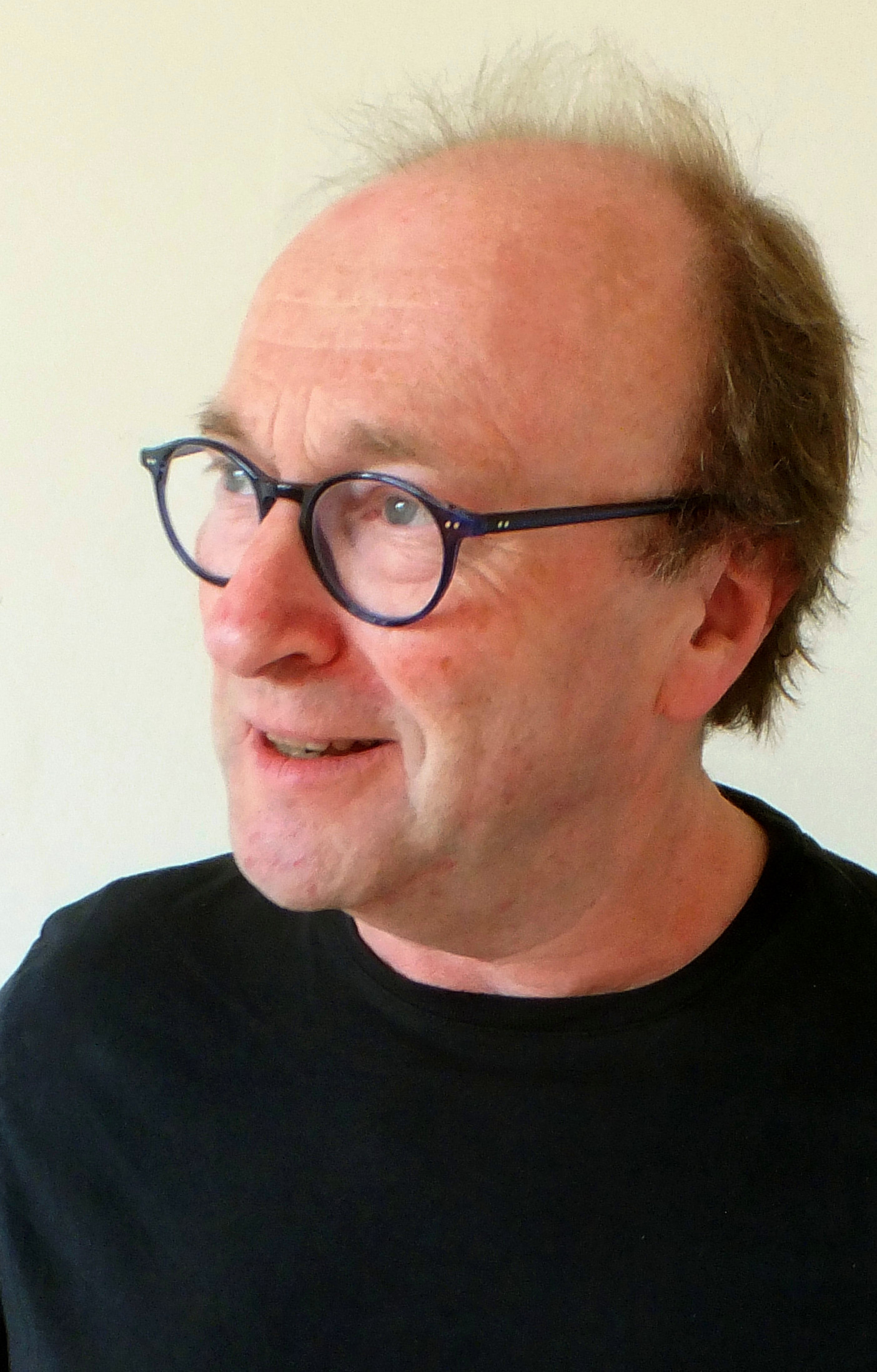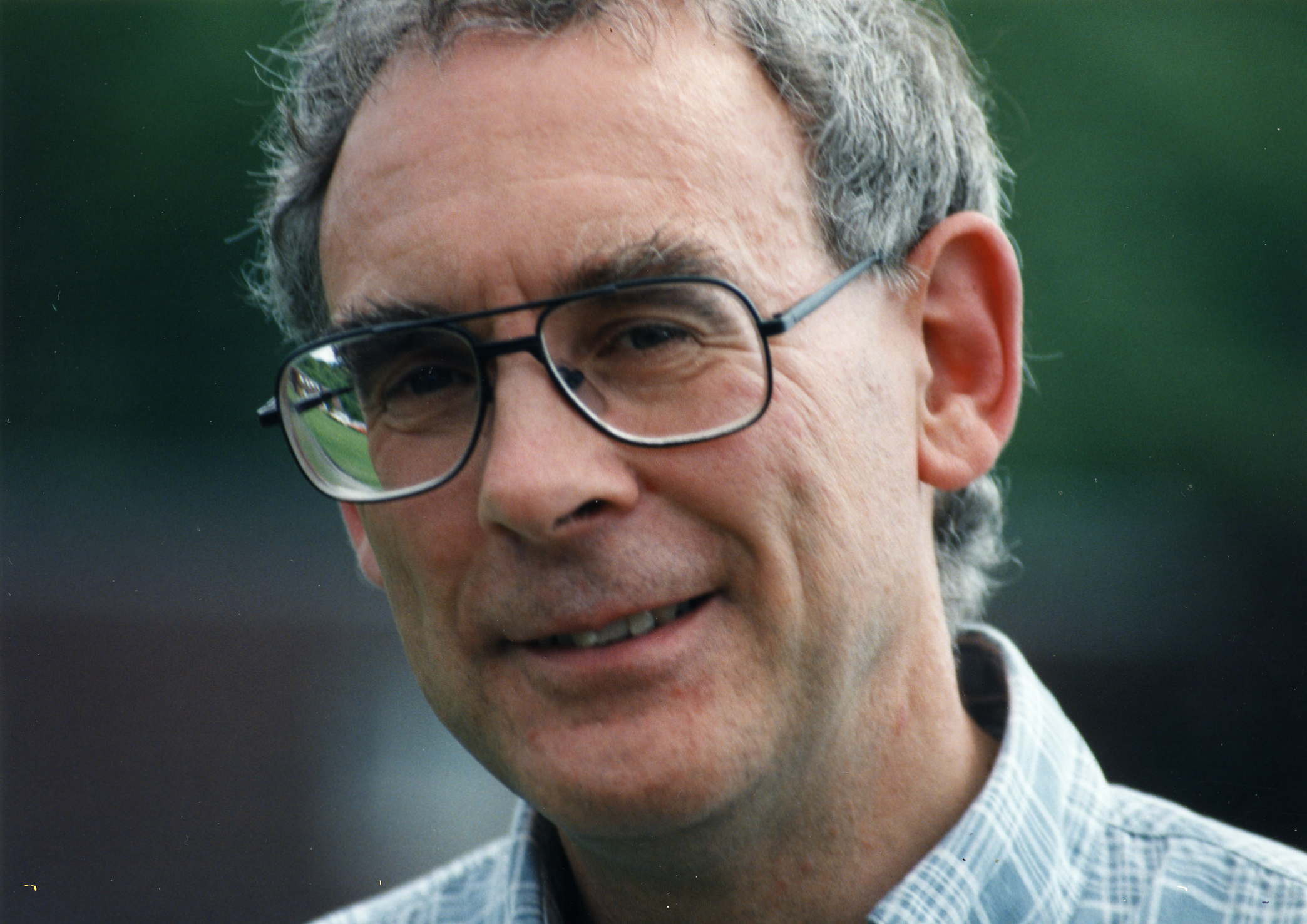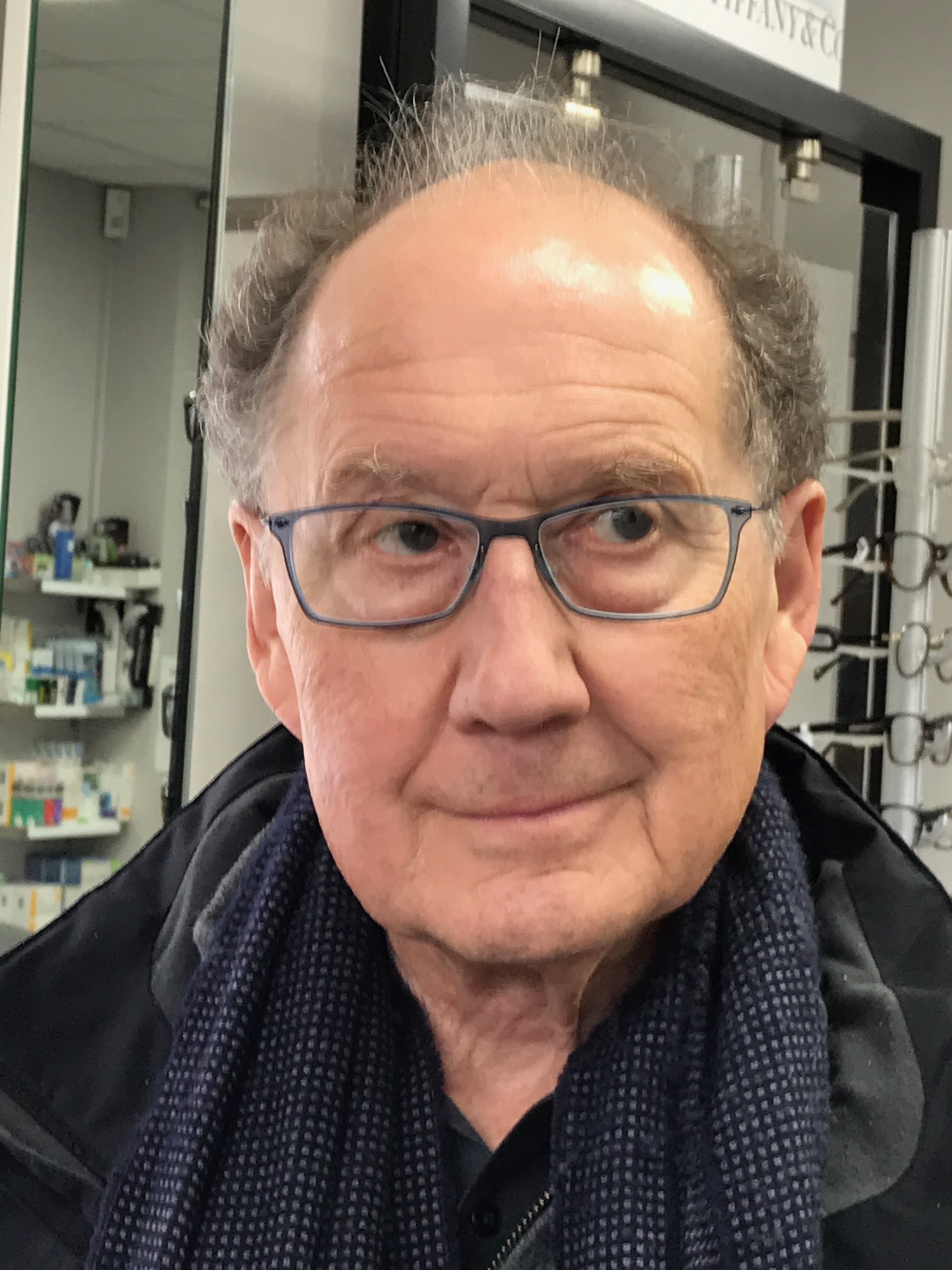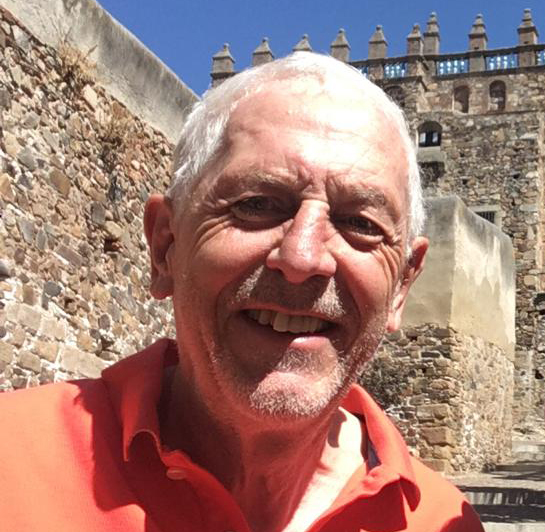The oral history of market research
Back in 2011 the Research Network responded very positively to a proposal from Lawrence Bailey to compile an Oral History record of the market research industry.
Oral history has been defined by the Centre for Urban History at Leicester University as “the recording, preservation and interpretation of historical information, based on the personal experiences and opinions of the speaker... It is an invaluable way of preserving the knowledge and understanding of older people.”
At the time, Lawrence wrote:
“It would be desirable to create an audio resource that would be of interest to Market Researchers in years to come, via interviews with some of the luminaries of our industry. There are now ‘oral histories’ being collected for a variety of purposes, but they all follow the aim to provide vivid, first-hand accounts that go beyond the scope of written records.
“What I have in mind is a series of one-to-one interviews in a style not unlike Desert Island Discs (without the music!), in which plenty of time would be devoted to reminiscence and narrative regarding the events and people that have shaped and developed Market Research… I would hope for interviews that bring out the character and interests of the interviewees as well as their knowledge about phases in the development of the industry, and the research activities that they themselves have been involved in.
Lawrence conducted the first seventeen interviews himself, utilising to the full his “psychologist-quallie” abilities. These included a Video/Audio interview with Bill Schlackman, one of the founders of UK Qualitative Research, conducted jointly with Simon Patterson. A short video taken from these sessions can be found here. The full-length audio interviews are available via the links below.
In addition, it is hoped to continue with the Program of Oral History Interviews in 2020, but inevitably, it will be in abeyance for much of the year, due to the UK Lockdown over the Corona Virus Pandemic.
- Gerald De Groot
- Gerald Goodhart
- Geoffrey Roughton
- John Downham
- John Barter
- Marie Alexander
- Valerie Farbridge
- Martin Simmons
- Liz Nelson
- Ivor McGloughlin
- Ted Whitley
- Bill Schlackman
- Nick Phillips
- Tom Punt
- Sir Robert Worcester
- Mary Goodyear
- John Goodyear
- John Samuels
- John Wigzell
- Phil Barnard
- Peter Bartram
- Pam Edwards
- Hugh Bain
- Juanita Byrne-Quinn
- Paul Feldwick
- Ed Ross
- Sue Robson
- Wendy Gordon
- Tony Cowling
- Jackie Dickens
- Roddy Glen
- Peter Mouncey
- Bill Blyth
- Nigel Spackman
- Tim Bowles
1. Gerald De Groot
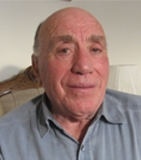
Gerald was born in London in 1932. He attended the London School of Economics and gained a BSc in Economics specialising in Sociology (1953).
He started his career at Gillette Industries in 1956 and moved to Willings Press Service and BMRB before becoming Managing Director of Schwerin Advertising Research in 1962.
Gerald joined Lintas as Director of Research and Media Planning in 1966 and was appointed to their Executive Board in 1969. In 1979 he formed Mark Research, which later amalgamated with Gordon Simmons Research. Retired 1992.
Gerald served as chairman of MRS, ABMRC and the JICTAR committee. In 1968 he was awarded the IPA President's Gold Medal, the only research specialist ever to have received this award.
In 1979 Gerald published The Persuaders Exposed, dealing with the relationship between academic social science and commercial marketing and advertising practice. He retired in 1992.
Gerald DeGroot
11th August 2011
Interviewed at home in Golders Green, London, by Lawrence Bailey Editor: Lawrence Bailey
Book choice: Pnin by Vladimir Nabokov (in Penguin, 2003, 2010)
2. Gerald Goodhardt
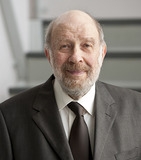
Gerald was born in London in 1930. After completing his National Service in the army, he attended Cambridge University where he gained a BA Mathematics (1953) and a Diploma in Mathematical Statistics (1954).
Gerald’s research career began in 1956 with Attwood Statistics, followed by Young & Rubicam and Aske Research. In 1975, he joined the Marketing faculty of Thames Polytechnic (now the University of Greenwich) and was then appointed first Sir John E Cohen Professor of Consumer Studies at City University in 1981. Gerald filled a number of positions at City, including Dean of the Business School.
Gerald served as Chairman of MRS in 1973/4, and was awarded the MRS Gold Medal in 1967 and 1996. He was the founder and first President of MRBA. Honorary Secretary of the Royal Statistical Society 1982/8 and a member of the Gas Consumers Council 1986/96.
Gerald retired in 1995 and is Currently Emeritus Professor at City and Adjunct Professor at The Ehrenberg-Bass Institute, University of South Australia. He married Valerie in 1957 and they have two children and numerous grand- and great grandchildren.
Gerald Goodhardt
11th August 2011
Interviewed at home in St. John’s Wood, London, by Lawrence Bailey
Editor: John Flattery
Book choice: How Brands Grow: What Marketers Don’t Know by Byron Sharp (Oxford University Press, 2010)
3. Geoffrey Roughton
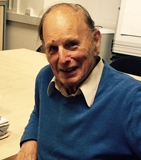
Geoffrey was born in 1929. After military service, he went to Cambridge to study Engineering and English. He joined the Attwood Group in 1955, before leaving in 1957 to form MAS with John Robertson.
Although initially a media consultancy, MAS soon began undertaking surveys. They were the first MR company in Europe to have an in-house computer (an IBM 1130); the first (of its size) to appoint a female director and the first private MR company to be sold to a PLC, eventually being absorbed into TNS.
After MAS was taken over, Geoffrey joined Pulse Train, becoming acting CEO and Chairman before it became part of Confirmit in 2007. He is a Fellow of both MRS and the Royal Statistical Society, a Trustee and Chairman of a Housing Association and, after surviving some cardiac problems, he became Chairman of a Heart Support Group and is a British Heat Foundation Ambassador and award-winner.
He is a keen walker, bon-viveur and reader. He lives with his wife, Caroline, where they bask in the joy of seven grandchildren in a large, rambling, Victorian mansion in West London.
Geoffrey Roughton
12th August 2011
Interviewed at home in Chiswick, London, by Lawrence Bailey
Editor: Lawrence Bailey
Book choice:
A Mathematician’s Apology by G. H. Hardy (Cambridge University Press, 1967)
4. John Downham
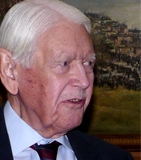
John was an RAF navigator during the Second World War, but returned to Oxford University afterwards and gained a First in PPE. He joined the British Market Research Bureau in 1948 as its first Research Officer responsible for consumer surveys and eventually became Managing Director in 1960.
In 1963 John was headhunted by Unilever, where he worked for 23 years developing the company’s research facilities internationally and promoting the effective use of research by marketing departments. He became a member of MRS in 1952 and served as Chariman in 1959-60. He received his Fellowship in 2000 and the MRS Gold Medal in 2001.
John has served on the Councils and Committees of ESOMAR, the Institute of Statisticians, the Market Research Benevolent Association and various other cultural and amenity societies. He has published numerous papers on market research and marketing, including co-editing the first three editions of the Consumer Market Research Handbook.
John Downham
7th September 2011
Interviewed at home in Shalford, Surrey, by Lawrence Bailey
Editor: Lawrence Bailey
Book choice: Montaigne: The Essays by Michel DeMontaigne
5. John Barter
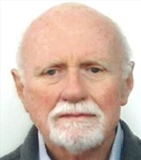
John was born in Norwich in 1934 and grew up there. After graduating from the London School of Economics, he qualified as a Chartered Accountant before joining the RAF. On demobilisation in 1961, an introduction through the LSE old boy network led to him becoming NOP’s fourth employee.
NOP appointed John as Joint MD (with Frank Teer) in 1966, and MD in 1972 when Frank left. He remained in the position until taking early retirement in 1991. He subsequently worked extensively as a consultant and expert witness in legal proceedings involving the use of survey data in evidence.
John served on numerous MRS committees and was Chairman from 1979-81. He was also Chairman of AMSO and NOP’s representative on its Council for 25 years.
Since 2009 John has devoted himself to his role as a ‘Burden on Society’ with a modicum of family activities, travel, and light voluntary work thrown in. He lives in West Sussex.
John Barter
7th September 2011
Interviewed at home in Warnham, West Sussex, by Lawrence Bailey
Editor: Trevor Bailey
Book choice: The Strategy of Desire (On Motivation Research) by Ernest Dichter (1960)
6. Marie Alexander
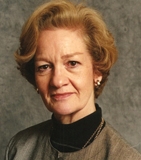
Although born in England in 1931, Marie’s early years were spent following her father’s Royal Air Force postings. She returned for school, but when she left with her Higher School Certificate aged 16 she had no intention of going on to university. She trained first as a nurse then worked as a secretary/PA in the fashion industry.
Eventually, with a desire to broaden her career options, she attended Durham University and graduated in philosophy and psychology in 1957. Marie’s first job in market research was in the Unilever-owned Research Bureau Limited, after which she worked as a buyer of research for various advertising agencies.
Marie eventually specialised in employment research. In 1973 she became Personnel Research Director at Social Policy Research, then took on a five-year contract within the Manpower Services Commission of the Civil Service. In 1981 she joined RSGB and stayed there until 1994, after which she worked as an independent consultant.
Marie retired in 2001. During her career she was a full member of MRS, serving on the Professional Standards Committee and Code of Conduct query panel. Marie was a member and later Chairman of the ICG and a founder member of the SRA. She became a Fellow of the Royal Society of Arts in 1993.
Marie Alexander
9th September 2011
Interviewed at home in Maida Vale, London, by Lawrence Bailey
Editor: Lawrence Bailey
Book choice: The Consumer Market Research Handbook (1986) by Robert M. Worcester & John Downham
7. Valerie Farbridge

Valerie was born in Lewisham and, after early experience with Unilever, joined National Opinion Polls in 1963. As its first field manager, she rapidly set about recruiting and training a first-class team of interviewers.
She was appointed a main board director of NOP in the 1970s and remained with the company throughout her career. Valerie actively supported the rights and status of interviewers across the UK, and was elected Chairman of MRS in 1981. Soon after retiring in 1990, she was appointed an Honorary Fellow.
Alongside her day job, Valerie also devoted time and effort over many years to helping the homeless as a volunteer at the well-known outreach centre at St Martin’s-in-the-Fields. She spent much of her later years very active in the social life of Hythe in Kent, with a love of travel and the arts – donating many of her own paintings to the MRBA annual auctions.
Valerie Farbridge
25th November 2011
Interviewed at home in Hythe, Kent, by Lawrence Bailey
Editor: Lawrence Bailey
Book choice: From First to Last - Damon Runyon
8. Martin Simmons

Martin studied statistics at the London School of Economics, graduating with a BSc in Economics (1953). After National Service he started his career in market research, largely influenced by Alan Stuart, a brilliant lecturer later to be head of the statistics department at LSE.
In November 1955, Martin was appointed research executive at Sales Research Services owned by Bill Coglan, a founder member of MRS. At that time there were about a dozen research agencies in the UK, mostly owned by advertising agencies. He progressed to Research Director and was then persuaded by Bert De Vos to leave SRS in 1959 and set up a retail company with him at Gallup Poll.
Martin, as a Director, built up a profitable retail speciality over his decade at Gallup Poll. In October 1969 he and Lionel Gordon jointly set up Gordon Simmons Research which was to specialise in retail, financial and business-to-business research. In August 1993, the company was sold to Opinion Research Corporation.
Martin was heavily involved in supporting MRS and ESOMAR. He was elected to the MRS Council in 1969, chairing the Publications Committee. Over the following years, he presented papers at MRS and ESOMAR annual conferences and at the Institute of Grocery Distribution. He convened seminars on retail research for MRS at Cambridge, at the Lygon Arms in Broadway, at the Penns Hall Hotel in Sutton Coldfield; and for ESOMAR in Amsterdam. He also lectured at the MRS Summer School for several years.
Martin Simmons
21st December 2011
Interviewed at home in Hendon, London, by Lawrence Bailey
Editor: John Flattery
Book choice: Moviola by Garson Kanin (Bookthrift, 1979)
9. Liz Nelson
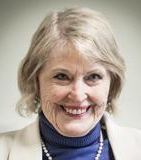
Liz was educated in the USA and London, where she gained a PhD in Clinical Psychology and founded and chaired Taylor Nelson Sofrès from 1965 until 1992.
She was awarded an OBE in 1997 for services to Ecolabelling and holds Honorary Doctorates from City University (1993) and the Open University (2003). She has Honorary Fellowships from City and Guilds (1994) and the University of Roehampton (2003). She has been Chairman of Marketing Group of Great Britain (1980-82), NED of Royal Bank of Scotland PLC, Chair of SW London National Health Service Trust, Director of BrightTALK Ltd, WellBeing - the fundraising arm of Royal College of Obstetricians and Gynaecologists, Chair of Stargate Capital Investment Group Ltd., and Vice-Chair of the Open University (1997-2003).
Liz is currently executive chairman of Fly Research and serves on the Catalyst Fund for BBC Media Action. She is Deputy Chairman of the Cambridge Alumni Communication Committee and an MRS Main Board Member
She was awarded the MRS Gold Medallist in 1993 for signal service to the profession and received the Lifetime Achievement Award from the Women Who Make a difference International Women’s Forum in 2011.
Liz Nelson
15th August 2012
Interviewed at home in Wimbledon, London, by Lawrence Bailey
Editor: Lawrence Bailey
Book choice: Uses and Abuses of Psychology by H.J. Eysenck (Pelican Books, 1967)
10. Ivor McGloughlin
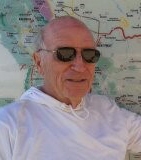
Ivor attended high school in New York. He returned to the UK to complete his National Service in the RAF, then a PhD in statistics at University College London.
He was first employed in operational research at British Aluminium Company andGillette, before becoming chief statistician and then a director at Attwood Statistics. He was technical director of the Family Food Panel at Taylor Nelson and Associates and then moved to Toronto to join International Surveys Limited.
His last move was to join Management Science Associates in Pittsburgh asVice President. He worked in the New York, Chicago and finally the Pittsburgh office and spent most of his time developing and selling the Market Impact model.Ivor stopped working in 2012 and returned to Kingston upon Thames, where he lives with his wife Valerie. His two daughters and four grandchildren live nearby.
He plays bridge and for thirteen years directed bridge on some 25 cruises.
Ivor McGloughlin
24th October 2012
Interviewed at the Market Research Society office, London, by Lawrence Bailey
Editor: Trevor Bailey
Book choice: Seven Pillars of Wisdom by T.E. Lawrence (Penguin Classics, 2000)
11. Ted Whitley
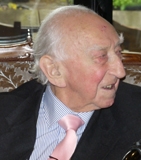
Ted attended St Marylebone Grammar before serving as a Sub-Lieutenant in the Royal Naval Volunteer Reserve aboard HMS Devonshire, a County-class heavy cruiser which provided an escort for the carrier raids that were mounted on shipping and other targets in Norwegian waters throughout the Second World War.
After the war, Ted attended Edinburgh University, graduating in 1949 with an MA in Maths and Psychology. This led to a position in the Research Department at S H Benson, one of only five advertising agencies to have held the Guinness account.
Ted left S H Benson in 1955 and started a ten-year stint in the Marketing Services Department at ABC TV, followed by Contimart and then ABC Cinemas. He then joined Reader’s Digest in 1968, where he stayed until retiring in 1990 as a Research Director.
Edward ‘Ted’ Whitley
18th December 2012
Interviewed at home in Bromley, Kent, by Lawrence Bailey
Editor: Trevor Bailey
Book choice: A Dance to the Music of Time by Anthony Powell (1951-75)
12. Bill Schlackman
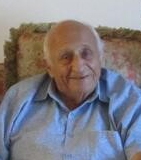
Born in 1930, William ‘Bill’ Schlackman grew up in the Bronx, New York and studied Psychology at Brooklyn College. He then received his Masters in Psychology at City College, after which he practised clinical psychology at the Marlboro State Hospital, New Jersey, gaining experience in Psychoanalysis and the use of projective tests.
Prior to his military service in 1954, Schlackman worked as a delivery boy. He was asked to collect a package from the Institute for Motivational Research and deliver it to the offices of True Magazine. Schlackman famously opened the package, discovering a report with the title ‘Why men read True Magazine’. After reading the study, he realised that this was something he could have done. He later went to the offices of the Institute for Motivational Research and expressed his interest in joining Ernest Dichter’s team. As he could not get a full-time job with them at the time, he decided to go into business for himself.
In 1956, Schlackman went back to Dichter at the Institute for Motivational Research with reports he had written whilst freelancing and a few articles he had written about packaging. He was hired on the spot.
In 1960, Schlackman moved to London to set up Ernest Dichter Associates of which he was the Managing Director. Soon after in 1961 he set up his own business, William Schlackman Limited. Being an active member of the MRS and supporter of the AQR, he presented a number of papers at MRS conferences between 1961 and 1986.
Now retired and living in Florida with his wife Joan, Bill Schlackman is known as the ‘Father of Qualitative Research’ in the UK who strove to achieve a deeper understanding of consumer motivations through the use of experimental research design as well as projective and motivational techniques.
William ‘Bill’ Schlackman
7th and 8th May 2013
Interviewed at home in Fort Myers, Florida, USA, by Lawrence Bailey and Simon Patterson
Editor: Lawrence Bailey
Book choice: The Post-American World: and the Rise of the Rest by Fareed Zakaria (2008)
13. Nick Phillips
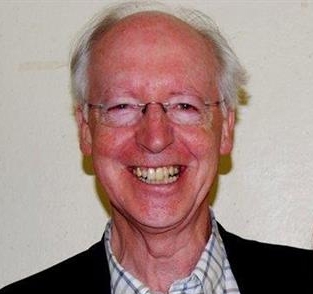
Nick Phillips grew up in Wimbledon, South West London, into a family background of academia and university administration. In 1959 Nick went up to Oxford to read PPE and on leaving University found his first job at Fisons, where he became involved in market research projects.
From then on, Nick had a long and distinguished career both in market research and, in the years 1989-2001, in advertising, as Director General of the Institute of Advertising and as a member of the UK government’s Advisory Committee on Advertising and the Creative Industries Export Promotion Advisory Group.
As a market researcher, Nick held a number of senior positions on the client side of the industry with Granada Television, Beecham Products and, finally, as Head of Research at the COI (Central Office of Information).
We should mention that Nick was for three years Chairman of the Research Network, during which time he consolidated the progress made after it was initially set up by Peter Bartram.
Nick Phillips
27th August 2014
Interviewed at home in Barnes, South West London, by Lawrence Bailey
Editor: Lawrence Bailey
Book choice: ‘History of Architecture (20th Ed)’, Sir Banister Fletcher
14. Tom Punt
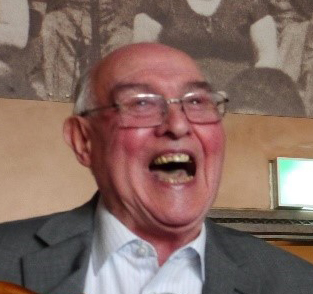
Tom Punt (1930–2015) graduated from Christ’s College, Cambridge with a First Class Honours degree in History in 1951 and joined Lintas as a research officer. Five years later he moved to Mass Observation and then in 1960 he to the client side, joining Hoover.
In 1966 he became research director at Doyle Dane Bernbach and in 1973 moved back into research agency life with Taylor Nelson, of which he soon became a director. From here he moved in 1976 to become a director at MIL Research; following its merger with NOP, he became Joint Divisional Director of NOP Social & Political, where he remained until retiring in 1993.
After retirement Tom worked as a freelance researcher, finally stopping work altogether in 2000 at the age of 70. He maintained contact with his many friends in the research industry, however, and was a founder member of the Research Network. He set up the Network’s website and, together with Phyllis Vangelder, co-edited this Newsletter until February 2009. An enthusiastic blogger on research and political matters, he continued to serve on the Network Steering Group as webmaster until his death.
Tom Punt
14th October 2014
Interviewed at home in Epsom, Surrey, by Lawrence Bailey
Editor: Paddy Costigan
Book choice: The Story of Art - Ernest Gombrich (Phaidon Press, 16th Edition, 2007)
15. Sir Robert Worcester
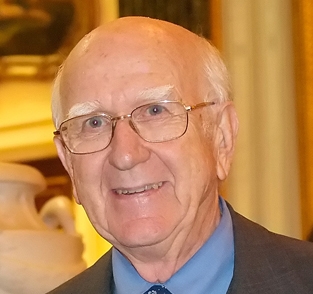
Sir Robert Worcester grew up in Kansas City. He is a graduate of Kansas University and is now an Adjunct Professor. After McKinsey & Company he became Chief Financial Officer at Opinion Research Corporation (ORC), coming to the UK in 1969 to set up Market & Opinion Research International (MORI), a joint venture of ORC and NOP (National Opinion Polls).
In 1973, Bob Worcester bought out ORC and MORI became an independent UK company, with NOP holding a minority share. In 2005 MORI joined with the French research company, Ipsos, to form Ipsos-MORI.
Corporate image research was very much the area of research expertise that Bob embodied, with major ongoing studies into corporate reputations both in the UK and internationally.
Bob’s expertise in the area of political polling is well known, starting with Harold Wilson’s private polling in 1970. In 1975 Bob carried out the research on the EEC Referendum on behalf of the Government; MORI’s final poll results, 67% “in”/33% “out”, exactly the outcome.
In 2005 Bob stood down as Chairman of MORI; Bob continues to work part time at Ipsos-MORI, serves as a Patron of the Market Research Society, and has held visiting professorships at the London School of Economics and Political Science, (LSE), King’s College London (KCL), University of Strathclyde and City University.
Apart from many other activities, both academic and non-academic, Sir Robert Worcester chaired the Magna Carta 2015 800th Anniversary Commemoration Committee, served as President of the Institute for Business Ethics, and is Patron of several organisations, holds President and Vice Presidency appointments of companies and charities and currently is Chairman of two privately held companies.
Sir Robert Worcester
6th February 2015
Interviewed at home in London, by Lawrence Bailey
Editor: Lawrence Bailey
Book choice: ‘Magna Carta: A Very Short Introduction’ (2012), by Nicholas Vincent
16. Mary Goodyear
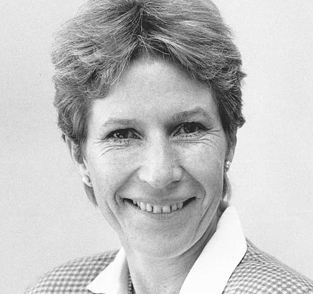
Like many people of her generation, Mary became a researcher by happenstance and until recently had been still wondering what to do when she grows up. She became a qualitative researcher because university friends were doing it to make extra money in the vacations, and she got hooked by the fascination of being paid to ask people questions and find out they did with their money and why.
After she graduated in Psychology from University College London, she joined John Goodyear, together with another psychologist, Alan Beckett, in the newly created Market Behaviour Limited, where she stayed for the rest of her career.
She thoroughly enjoyed the diversity of the job: the different clients and market sectors and the variety of approaches to the research process –every week was different, every project was new and the job took her all over the country. Best of all, the respondents were completely unpredictable, some of them and what they said are still remembered to this day.
The interest level increased a hundredfold when she was commissioned in 1971 to carry out a study by Beecham in India: 45 groups in six different locations; it was an education and a profound pleasure. And from then on she pursued as much international work as possible. Each new country presented something surprising in terms of how products were classified and used. Later on she was involved in multi -country co-ordinated research where often the research objective was to see how far an ad campaign could be ‘stretched’ to appeal to say consumers in three different continents, and which part of the marketing mix had to be unique to specific countries.
Mary gave many lectures about international research, especially West Africa, which in all its unfamiliarity and vitality was her favourite stamping ground. She was also a keen member of ESOMAR in the early nineties and became their first woman President.
Finally, along with John Goodyear, she was an integral part of the MBL Group of Companies, until they were sold to NFO in the 1990’s.
Mary Goodyear
26th May 2015
Interviewed at home in London, by Lawrence Bailey and Simon Patterson
Editor: Lawrence Bailey
Book choice: The New Oxford Book of English Verse - Helen Gardner (ed.) (OUP, 1972)
17. John Goodyear
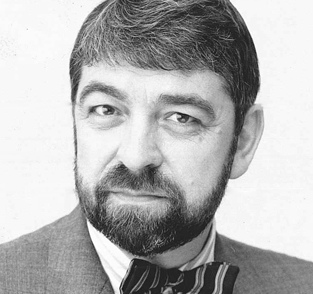
To many in the research world John has always seemed rather larger than life, an exciting and ebullient personality, as people meeting him would agree. He doesn’t fit one’s idea of the introverted and academic researcher, but a researcher is what he has been all his working life.
John had his first encounter with market research in the early years at college, and through a process of self-teaching and exposure from existing practitioners, such as Bill Schlackman, Alex Kondos, and many others, he acquired a basic grounding in qualitative and quantitative methodologies and their application to the world of advertising and marketing.
Shortly after getting his degree, in 1965, he started his first company - ‘MBL’ (Market Behaviour Ltd, London) – which soon became well-known amongst research buyers, especially those who wanted to understand what motivated their purchasers – ‘what makes the consumer tick’. John was a good salesman but more importantly he understood the clients’ information requirements, and he always told it as it was.
He stayed working as a hands-on researcher for fifteen years, but became increasingly active in research organisations and educational initiatives. He was Chairman of AMSO, on the International and Education Committees of the Market Research Society, very much involved in ESOMAR, and an invited speaker at many conferences and seminars around the world, including the United States, Australia, The Middle East, Hong Kong, India and the Philippines. He also had papers published in various research and associated publications.
From the early Eighties, after a short period of working with MBL as part of JWT, John decided he wanted to go back to being his own boss. He recognised the potential of international research and started to put together what became The MBL Group of companies. This eventually provided a problem-solving service in over 100 markets, including smaller countries which didn’t have a solid research infrastructure but whose manufacturers wanted to develop the skills of modern thinking about brands. And so from being manager-owner of one small company in 1965 John became the Chairman and Chief Executive of The MBL Group, which totalled 28 offices across 19 countries.
John Goodyear
26th May 2015
Interviewed at home in London, by Lawrence Bailey and Simon Patterson
Editor: Lawrence Bailey
Book choice: Atlas Shrugged – Ayn Rand (Penguin Classics, 2007)
18. John Samuels
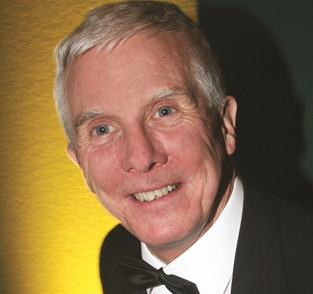
John attended Tiffin School in Kingston, and the Universities of Birmingham and Stockholm.
He spent all his working life in market research. Joining BMRB in 1964, he spent 10 years there, followed by a year at the Advertising Agency, OBM, and 3 years at the COI. He returned to BMRB in 1978 and was Managing Director for the last 10 years up to his retirement in 1995.
He then worked as a Consultant to Camelot, and as an independent specialising in Expert Witness projects, until 2006, when he did an MA at Kingston University
John lectured on more than 50 MRS education courses, worked on numerous Committees, and the MRS Council, serving as Chairman 1984-85. He was also on the Council of ESOMAR for many years. He frequently gave papers at both their Conferences, winning in all 7 Best Paper Awards. He was, uniquely, awarded both the MRS Silver and Gold medals and also the ESOMAR Silver medal.
John chaired the Awards Panel for the MRS Conference for many years and was a long standing member of the Committee of the Market Research Benevolent Association.
John Samuels
1st July 2015
Interviewed at MRS Office in London by Neil McPhee
Editor: Holly Bedwell
Book choice: ‘Collected Sonnets’, by Edna St. Vincent Millay (Harper Collins 1988)
19. John Wigzell
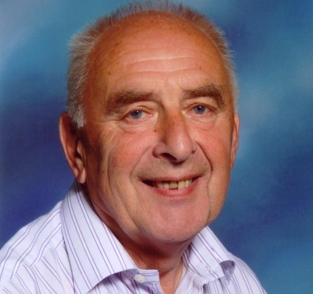
Graduated from St. Catharine's College, Cambridge, with a degree in Economics, Politics, and Sociology. Joined the advertising industry in the mid-sixties, with Ogilvy & Mather, founded Phoenix Advertising with former colleagues in 1980. Joined the board of The Research Business in 1985 and MaS In 1989. Lived and worked in Sidney, Melbourne and New York at different times.
Sometime university lecturer, speaker on the Market Research Society's Education Programme, Chief National Verifier for National Vocational Qualifications in Marketing for the Royal Society of Arts. Fellow of The Market Research Society.
Once part of an after dinner cabaret entertainment team which performed at advertising functions, dinners etc (billed as 'Ad Nauseam'). This may explain the slightly over-developed sense of humour. A keen (though not very talented) sportsman in his youth, marathon runner, and still playing tennis and golf in his dotage.
John Wigzell
2nd October 2015
Interviewed at Home by Neil McPhee
Editor: Jack Burn
Book Choice: Vance Packard, The Hidden Persuaders
21. Phil Barnard
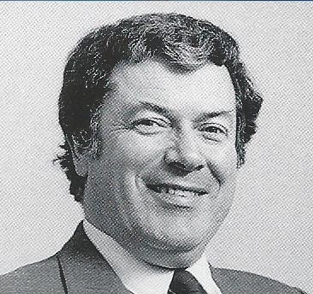
Born in 1941, Phil was educated at Windsor Boys Grammar School and read Natural Sciences at Cambridge University. Joined RBL, Unilever’s market research unit, in 1964, moving to Rotterdam in 1973 to help establish Research International (RI) as Unilever began pulling together its European research units under common management.
As RI expanded globally, Phil ran its businesses in Germany (84-86), UK (86-89) and New York (89-91) before returning to London as Chairman/CEO of RI Group, now owned by WPP, focussing the business on the management of multinational clients and global expansion, especially in Asia.
In 1993, he became founder Chairman/CEO of The Kantar Group, including RI, Millward Brown and BMRB, as WPP brought its global market research assets under common leadership. Organic growth and further acquisitions led to Kantar’s becoming the world’s largest research company. Phil retired in 1999.
His activities in the MRS and other industry and academic bodies (especially University of Texas at Arlington) around the world focussed particularly on international and B2B research, and the organisation of research companies.
Married with two children and four grandchildren, Phil lives in England’s Exmoor National Park. Interests include travelling (still!), reading of all sorts, ‘light’ politics and local community activities.
Phil Barnard
10th April 2016
Interviewed at Home in Exmoor by Neil McPhee
Editor: Neil McPhee
Book Choice: Matt Ridley, The Rational Optimist: How Prosperity Evolves
22. Peter Bartram
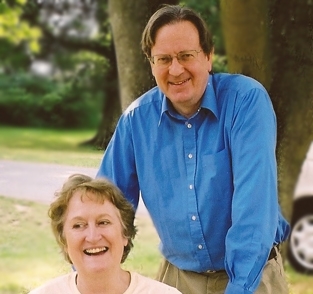
Peter was born in Singapore in 1940, spent his early childhood in Australia, and then back in England was educated at Christ’s Hospital and Fitzwilliam College Cambridge.
Four years at NOP and two years at the Thomson Organisation were followed in 1969 by setting up Louis Harris Research, conducting regular opinion surveys for the Daily Express. Later, with the parent Harris firm in New York and Los Angeles, he conducted much innovative research for various service industries, including the major film studios. He returned to the UK in 1978 as European Research Director, and later UK Card Marketing Director, at American Express. In 1985 he set up Applied Research and Communications (ARC) which later merged with the City Research Group.
The Market Research Society has been central to his career: briefly co-Editor of the Journal in 1972, he served on various committees before being elected MRS Chairman in 1989. Above all, being concerned that those who built the research industry should remain connected and remembered, he founded the Research Network in 2002, and he continues to work for the Archive of Market and Social Research, of which he is a Trustee.
In 1964 he met Mary at NOP, and stayed happily married to her from 1971 until her premature death in 2006. Her distinguished career in research with NOP, RSGB, BMRB, the English Tourist Board and British Airways deserves to be remembered as fully as any in this list of oral histories.
Peter Bartram
23rd June 2016
Interviewed at Home by Neil McPhee
Editor: Neil McPhee
Book Choice: Stanley Le Baron Payne, The Art of Asking Questions, Studies in Public Opinion / Carl Sandburg, Abraham Lincoln, The Prairie Yeas and the War Years
23. Pam Edwards
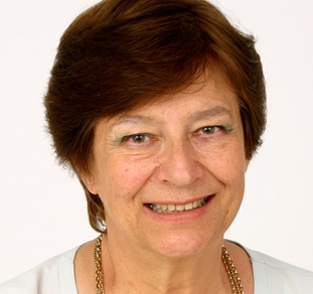
Graduating from Bristol in 1963 Pam started her career with the recently established Research Bureau Limited as a trainee. Two years later, she joined Colgate Palmolive, before moving to Nestle U.K. in 1969. At this time the department acted as an in-house full service market research agency for all Nestle U.K. brands.
She took a career break from 1974 to 1980 to establish her family of three sons, before moving to the Public Sector at Milton Keynes Development Corporation in the Economic Development Department. Towards the end of this time she was invited to return to Nestle U.K. as Marketing Research Manager.
After twenty years involvement with a vast range of research issues during a period of unprecedented change in the food industry she left Nestle to set up Research Connections Limited, offering consultancy to major multinational clients in the food and drinks industry. The company was involved in qualitative and quantitative research, but the main focus was on a major tracking survey and the management of the National Drinks Survey. These two major quantitative surveys provided the basis for the development of new complementary analytical techniques.
Since retiring in 2008, Pam with her lifelong interest in gardening, gained a Diploma in Horticulture and has qualified as a judge for the National Vegetable Society.
Pam Edwards
14th July 2016
Interviewed at Home in Ashstead, by Neil McPhee
Editor: Neil McPhee
Book choice: 'A Cook and His Vegetable Patch' Hardcover by Nigel Slater
24. Hugh Bain

Hugh grew up in Malaya, spending the latter part of WW2 in India as a refugee from the Japanese invasion and coming to live in the UK in 1950. After National Service in the RAF, he attended LSE, gaining a BSc in Economics, Sociology and Social Psychology in 1955.
He began his research career at Kellams Research, then worked in Unilever for six years (at Lintas as consultant psychologist, and at RBL in the Technical Control & Development group developing consumer research methodology for Unilever's Market Research Development Committee) before being appointed a Director of KBMS (part of the AGB group).
Hugh realised early on that he was a square peg which did not fit easily into round holes. He had no desire to progress down a corporate management path, preferring to continue working as a researcher, which he recognised was what he enjoyed and did best. In 1973 he set up his own company, Hugh Bain Research, with his wife (and former client) Jane. The benefits of being freed from the pressures and constraints of a conventional large organisation far outweighed risks inherent in ‘going it alone’.
Hugh believed in a problem-solving approach to research, using a range of skills as appropriate to resolve each task in hand. A highly skilled qualitative interviewer, he was equally at home with quantitative methods and academic statistical analysis, notably developing innovative multivariate fragrance research techniques. He continued to work on a wide range of projects in the UK and internationally, always to his own high and exacting standards, until ill-health intervened in 2001.
Hugh then returned to his first love, photography. He always carried a camera and photographed anything and everything which interested him, increasingly enjoying watching and taking pictures of the bird-life on and beside the River Thames, near his home in Hammersmith.
Hugh Bain
26th June 2016 & 18th November 2016
Interviewed by Neil McPhee at Home in Hammersmith, London
Editor: Tom Knott
Book Choice: ‘Good-bye to all that’ (Robert Graves), ‘Catch 22’ (Joseph Heller) and ‘Alice’s Adventures in Wonderland’ and ’Through the Looking Glass’ (Lewis Carroll)
25. Juanita Byrne-Quinn
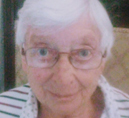
Juanita was born in Birmingham on the 18th December 1932 (therefore now aged 83) and was educated at St Paul’s Grammar School there, and Birmingham University, gaining a B Com and a Teaching Certificate. She began her working life as a teacher 1955 to 1958, and then moved on to become a Research Statistician at the Newman Demographic Survey 1958-1958, and a Research Officer at Lintas 1959 to 1967. In the 1970’s she was Research Manager of Proprietary Perfumes Ltd, which later became Quest International.
Before retiring she was also Chairman of AURA, and throughout remained very active with the women’s support and pressure group Soroptimist International. Based in Poole Dorset, her leisure activities have included water skiing and windsurfing, and she annually rents her Beach Hut from Poole Council. She spends much of her time there and, during the warmer weather, even goes swimming”.
Juanita Byrne- Quinn
26th June 2016
Interviewed at home by Neil McPhee
Editor : Paddy Costigan
Book Choice: A Morning and Evening Prayer Book
26. Paul Feldwick
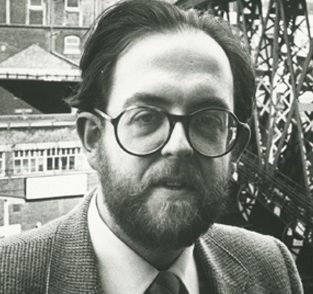
Paul Feldwick was born in 1952. He won a scholarship to Monmouth School and then read English at Trinity College, Oxford. In 1974 he accepted a job as account management trainee at Boase Massimi Pollitt, a rising London ad agency famous for its popular campaigns (Honey Monster, Smash Martians, etc) and its novelty ‘account planning’.
After six months as the world’s worst account man he was grateful to slip into account planning at BMP, where he stayed for the next thirty years. Account planners were then very hands-on qual and quant researchers, and he became a member (eventually a Fellow) of the MRS, and a frequent speaker at the MRS Conference.
He was Convenor of Judges for the IPA Effectiveness Awards in 1988/90, and also served as Chair of both the APG and the AQR. He has published many papers on advertising and research, and two books: What is Brand Equity Anyway? (2002) and The Anatomy of Humbug(2015). In the latter part of his career at BMP, which became part of the DDB network, he worked in a global training and development role. Since leaving the agency in 2005 he has worked as a consultant and completed an MSc in Organisational Consulting.
Paul Feldwick
8th November 2016
Interviewed at Home by Neil McPhee
Editor: Neil McPhee
Book Choice: Gareth Morgan, Images of Organisation
27. Ed Ross
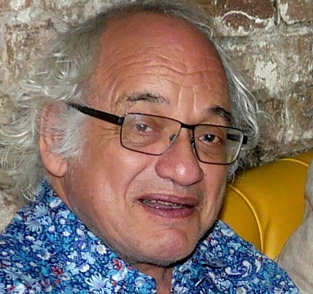
In 1964, Ed Ross came to the UK, where he worked in several computing posts at the University of London, until a year later, he joined the Gallup Poll to design and write a computer system for analysing data. He went on to design and write several analysis programs, culminating in the Quantum platform which is still in widespread use.
In 1978, Ross founded his Quantime business, which became best known for its statistical programming language Quantum and the world’s first interactive analysis program, Quanvert. Quancept, a CATI system followed, as did numerous other supporting packages. These products were developed for all elements of the market research process – including questionnaire design, data collection, and tabular report production. They were then, and in many ways remain, highly innovative and clever.
For the year 1996, revenues were more than $16m, and the firm employed around 150 people in offices in London, New York, Cincinnati, Mexico City, San Francisco, and Amsterdam.
Following the sale of Quantime in 1997, Ross continued to take a very active role in the world of Market Research. He co-founded the OpenSurvey organisation, which focused on evolving commonly agreed standards for survey software. In 2000, he joined the Triple-S committee; he was also an active member of the ASC (Association for Survey Computing) and a long-serving member of the MRBA. Earlier this year, he became Executive Chairman of Digital Taxonomy – a start-up engaged in the application of technology, including Artificial Intelligence, for understanding and coding open-end text gathered in surveys. He became a fellow of the MRS in 2011.
Ed Ross
10th November 2016
Interviewed by Neil McPhee Hampstead, London
Editor: Jack Burn
Book Choice ‘The New Book of Middle Eastern Cooking’ by Claudia Roden
28. Sue Robson

Sue was born and brought up in Kent and went to the local Direct Grant school on a scholarship. She studied sciences at A level as she initially wanted to be a Doctor, but she ended up studying PPP (Psychology, Philosophy and Physiology) at Somerville College Oxford when she realised she was more interested in people than in their illnesses.
Starting her market research career at BMRB, Sue discovered qualitative research which was a great fit with her curiosity about people and their lives. BMRB gave her a solid grounding in all market research. Sue then joined MBL to focus on qualitative research with John and Mary Goodyear. She worked at MBL for 10 years, ending up as Managing Director. MBL’s reputation for quality married well with Sue’s own beliefs and values.
1981 was a busy year as she got married, had her first child and started her own business, The Qualitative Consultancy, TQC. Her vision was to create a strong brand which would rival the best; to be an advocate for qualitative research, train others and develop new techniques of use to clients.
Sue ran training courses for the MRS including developing, in 1983, the very first course offering practical hands-on experience of moderating group discussions. This led to the book she wrote and co-edited with Angela Foster, Qualitative Research in Action, published in 1989.
Sue was a member of MRS Council from the 1980s, chairing committees including Professional Standards, Publications and PR. Sue was a founder member of AQR, believing that qualitative researchers needed their own strong voice, alongside the MRS.
TQC closed down in 2002 and Sue worked as a consultant until retirement. She was an MRBA committee member for 10 years and then joined AMSR, chairing the Marketing Committee. Along with this she has got involved in fundraising and networking for her Oxford College and being Chairman of the Governors at a local independent girls’ school. In her free time, she studies Art History for the sheer pleasure of always learning something new.
Sue Robson
21st December 2016 / 10th April 2019
Interviewed at home in London, by Lawrence Bailey/ Judith Wardle
Editor: Paddy Costigan
Book choice: Leo Tolstoy - Anna Karenina
29. Wendy Gordon
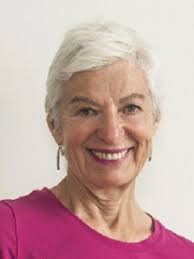
Wendy is a Fellow of the Market Research Society, a visiting professor at Birmingham Business School and has been honoured by The Women’s Advertising Club of London as one of its ’Women of Achievement’. She has been a frequent speaker at conferences, taught qualitative research master classes around the world, and is a published author.
Wendy Gordon
20th March 2017,
Interviewed at home by Simon Patterson
Editor: Simon Patterson
Book Choice: Sapiens , A brief History of Humankind - Yuval Noah Harari
30. Tony Cowling
Tony has spent most of his working life in the marketing information and research agency business and within one company for 40 years. However, during that time, Taylor Nelson went from:
- Start up (he joined day one in 1965), to
- Stock market listing (in 1989), to
- A Top 200 FTSE plc (in 2000), and
- The 2nd largest MR agency in the world.
Initially as MD, then as a FTSE CEO and later Chairman, Tony took the Group (Taylor Nelson Sofres plc) from a small UK company with a £5 million turnover to a fully listed plc with a market cap of £1 billion. When Tony retired in 2006 as life President, TNS had substantial operations in over 65 countries, a staff of nearly 15,000 and had made nearly 100 acquisitions across the world along the way.
Tony regularly presents papers at conferences and congresses around the world.
Tony is a past Chairman of the UK Association of Market Survey Organisations (AMSO), and a past President of Gallup International Association.
In January 2001, Tony was named Market Research Industry Executive of the Decade by Inside Research - the leading USA newsletter for the MR industry. Also in 2006, Tony was awarded the MRS Gold Medal.
Tony Cowling
2nd August 2017
Interviewed at TNS Offices in Epsom by Judith Wardle
Editor: Paddy Costigan
Book Choice: Five Frogs on a Log by Mark L Feldman and Michael F Spratt Harper Business Publications
31. Jackie Dickens
Following graduation in sociology/psychology, Jackie worked with the Government Social Survey, then joined Lintas research department, later part of the Research Bureau Ltd.
For 10 years Jackie combined child-rearing with freelance work, returning to start RBL Qualitative Research Unit with Jane Gwilliam in 1972. They won business from new clients, were profitable and expanded quickly.
Jackie joined Leo Burnett advertising agency where she developed and led the Account Planning Department. A job covering Europe/Middle East followed with a specialisation in brand and communications strategy planning, then three years in the Far East where Jackie also undertook the Management Development and Training strategy.
After retirement Jackie developed a long-term hobby by taking serious wine exams, becoming an international competition judge, and lecturing on river cruise ships.
Jackie Dickens
2nd December 2017
Interviewed at home in London, by Judith Wardle
Editor: Paddy Costigan
Book choice: Plato’s Republic Peter Medawar
32. Roddy Glen
An ex ad-person, qualitative research company founder, political activist, independent qualitative researcher, teacher and mentor, Roddy was lucky enough to be in many of the right places at the right times. In addition to having done 'thousands of groups' over 35 years, he has written, spoken, chaired, taught, debated and reviewed a lot of stuff about qualitative research and its relationship with its client communities. He believes it has to be fun and keeps cheery by doing wee bad things.
Timeline
- 1949 Born in Giffnock, Glasgow, to Jim and Betty Glen.
- 1966 Left Hutchesons’ Boys’ Grammar School, Glasgow
- 1972 Finally left the University of Strathclyde, Glasgow
- 1973 Advertising executive at CDP, on Heineken and Coty
- 1976 Overland to India. Worked with Tibetan exile community.
- 1977 Moved to market research to work for Bill Schlackman
- 1979 To adland again: BMP, as qualitative research manager
- 1985 Co-founded Strategic Research Group Ltd
- 1985 -1992 Member, Labour Party Shadow Communications Agency
- 1987 Married Maggie Howitt, and gained two step-daughters.
- 1987 -1989 AQRP (now Association for Qualitative Research) Chair
- 1989 Moved home from London W10 to Rutland
- 1991 Son, Calum born, changing life beyond all recognition.
- 1997 Tony Blair’s Office - successful General Election campaign
- 2001 Moved home from Rutland to Edinburgh.
- 2004 Fellow of the Market Research Society
- 2006 Industry judge IPA UK Advertising Effectiveness awards
- 2008 Honorary Fellow of the Institute of Practitioners in Advertising
- 2008 Editor of ‘In Brief’ - AQR’s bi-monthly news magazine
- 2010 Co-chaired AQR/QRCA World Qualitative Conference, Prague
- 2013 Retired from ‘active service’ as a qualitative market researcher.
- 2019 Stepped down from ‘In Brief’ to become an apprentice loafer.
Roddy Glen
10th July 2018
Interviewed at home in London, by Judith Wardle
Editor: Paddy Costigan
Book choice: Breakfast of Champions by Kurt Vonnegut
33. Peter Mouncey
Born in Birmingham in 1947, I attended Rhyl Grammar School in N. Wales, followed by three years as a Library Assistant in my then hometown of Prestatyn with the Flintshire County Library Service. I left N. Wales in 1968 to study for an HND in Business Studies and the Institute of Marketing’s Diploma at the then Ealing Technical College (where Margaret Crimp, a founder of the MRS Diploma, was a lecturer) and School of Art (famous popular musical alumni of the latter in the 1960s being Pete Townsend, Ronnie Wood & Freddie Mercury) in west London (now University of West London).
After college, I joined the Market Research Department at the Gas Council in 1970, leaving in 1971 to join the Automobile Association as a Market Planner, working on a number of projects associated with new market ventures. When the AA moved the head office from Leicester Square to Basingstoke in 1973, I was appointed Head of Market Research, and subsequently Manager, Market Research – managing a very diverse and growing range of projects, reflecting the AA’s very dynamic diversification programme in that era and its high profile public policy role. The AA’s extensive research programme for the publishing division led to my appointment as a non-executive director of Book Marketing Ltd (now part of the Nielsen group), formed to develop the first annual survey of book buying and readership in the UK, working with Len England and Ted Whitley. The AA also extensively used postal methodology for research amongst members, which led to me joining the Consumer Association’s (Which?) Survey Advisory Panel until it was disbanded.
After a career of 29 years with the AA, which also covered managing customer database development and marketing services; strategic development and leading CRM strategy, I left the senior management team in 2000 after the acquisition of the AA by Centrica, to set up independently. Since then, I’ve worked on consultancy projects for leading global companies; spend over 15 years as a Visiting Fellow at Cranfield University School of Management (specialising in research methods, key account management and marketing accountability), and, was Research Director of the Institute of Direct Marketing (IDM) for over ten years.
I joined the MRS in 1973, becoming a Full member of the MRS in the late 1970s, and served on the MRS Meetings, Conference, Publications and Technical & Development Committees, before being elected as a Council member in the mid-1980s, and MRS Chair in 1990. A long-term member of the Market Research Society (MRS) Market Research Standards Board, I also set up and ran programmes of data privacy training courses for the MRS, the Social Research Association and other organisations between 2001-2018. I was appointed Editor in Chief of the MRS International Journal of Market Research in late 2004, a role held until retirement at the end of 2019. In addition to serving as Chair of the MRS, I’ve also served as chair of AURA and the Research Development Fund in the 1990s (leading a major project on co-operation in consumer and b2b research). I was awarded fellowships of both the MRS and IDM, was a Finalist for the MRS Silver Medal in 2004 and was extremely honoured to be awarded the MRS Gold Medal in 2019.
In addition to being author or presenter of written and conference papers, I was joint editor of 'Market Research Best Practice, 30 visions for the future' (ESOMAR/Wiley 2007) and joint author with Emeritus Professor Malcolm McDonald of 'Marketing Accountability' (Kogan Page 2009) and (also with Stan Maklan) of ‘Marketing Value Metrics’ (Kogan Page 2014).
Peter Mouncey
11th June 2018
Interviewed at home in Shaftesbury, by Judith Wardle
Editor: Paddy Costigan
Book choice: The Ragged-Trousered Philanthropists –Robert Tressell, The Hidden Persuaders –Vance Packard
34. Bill Blyth
Bill studied Economics and Statistics at Exeter University, where he first encountered market research. His first job was at BMRB, joining in 1970. He left in 1974 to be Statistician (later Chief Statistician and Director) at MIL. In 1982 he moved to AGB as a Director. You could consider that was Bill’s last place of employment but the company ownership changed hands- Robert Maxwell, TNS and WPP, and his job changed a number of times as well, meaning a varied career with different responsibilities, colleagues and even locations over more than 30 years.
Bill’s first success was the Blyth/Marchant sampling technique which was used in both the Essex University study of the 1974 election, and the revised sampling method of the National Readership Survey. This was the only time that RSL ever lost the contract for the study. At MIL he designed the Farmstat Panel of farmers, with a random sample using Ordnance Survey small scale maps.
At AGB, Bill was instrumental in improving panel data quality and in turning the TCA/TCPI/Attwood panels into the new electronic creation and development of Superpanel, a self-completion panel, which still continues today around the world as Kantar World Panel. He also pioneered the use of speech recognition and technology in the late 1980’s and 90’s and later went on to design the large scale studies, Eurobarometer, in both face to face and telephone research across the whole of the European Union.
For most of his career, Bill was active in giving papers at conferences and seminars, including papers at ESOMAR as well as the MRS Conference, some of which were then published in the IJMRS. He won awards for best paper and was selected for papers in both the first and second halves of the first 50 years’ best research.
During all this time, Bill was very active in the market research world. He was a member of the R&D committee for 5 years, an MRS Council Member, during which time he ran the Academic Standards and Education committee, became Treasurer and then Chairman of Council. He introduced the first MRS accredited qualification in 1985.
Bill was actively involved in AMSO for nearly 10 years and, while he was Chairman, he led the merger between AMSO and ABMRC, the other industry body. Whilst on the AMSO board he was also the AMSO representative on the EFAMRO board and was Chairman for two years in the 1990’s.
One of Bill’s market research ‘passions’ has been his concern about quality standards, both in terms of training young people and in terms of the transparency and quality of the services provided by market research agencies to their clients. From 1994 he was actively involved in designing the first BSI type standard for market research in the world. Bill was a member of MRQSA, which ran this group in the UK, and was instrumental in forming the ISO for Market Research in 2002. He became Chairman of the group in 2008. From 2010 he was a member of ESOMAR’s Research & Development Committee.
For his contribution to the statistical and market research world, he was awarded a Gold Medal by the MRS in 2017.
He met Sue Robson when they both started work on the same day at BMRB, in 1970. They married in 1981 and have two children. Now that he is retired, he can spend more time on his other ‘passions’ - apart from family, these are gardening and playing the piano.
Bill Blyth
3rd September 2019
Interviewed at home in London, by Graham Woodham
Editor: Paddy Costigan
Book choice: The Good Soldier Svejk– Jaroslav Hasek
35. Nigel Spackman
Nigel entered market research by accident without knowing what it was. He had a well-organised friend at Liverpool University who had decided on MR as a career, which led Nigel to assume that he might be qualified for this path when he saw an ad for a graduate trainee vacancy at Nestle. Somehow, they chose him, and he discovered he enjoyed it.
After a few years he moved on to the Thompson Organisation, then one of the largest media owners in the UK, but after three years wanted to work in a smaller business where one’s contribution could be more crucial to business success. So, he moved to the agency side running the media team at Harris Research, and realised that agency life was for him.
Six years on came a move to RSGB, where he became MD, and was later promoted to run all AGB’s non-continuous research interests. This came to a sad end when Robert Maxwell bought AGB, and Nigel felt he could no longer work for a bully and, as it transpired, a thief.
At this point he became a shareholder in, and MD of BJM, but within the first year he had to share this role with a key involvement in the campaign to reclaim AGB’s pension funds which Maxwell had purloined. Eventually this worked out well, as did BJM which was sold to a US firm, NFO some years later. In turn NFO sold the company to TNS at which point Nigel took a step back from the top level and worked part time until 2009 when he retired.
During his career Nigel was Chair of AMSO, the large research companies’ trade association, and was Hon Sec/ Treasurer of the MRS. Since retirement he has been a non-executive Director of Network Research, now Motif, and enjoyed a spell as Chair of the Research Network.
Nigel Spackman
21st November 2019
Interviewed at home in London, by Graham Woodham
Editor: Paddy Costigan
Book choice: Hamish Brown, Mountain Walks
36. Tim Bowles
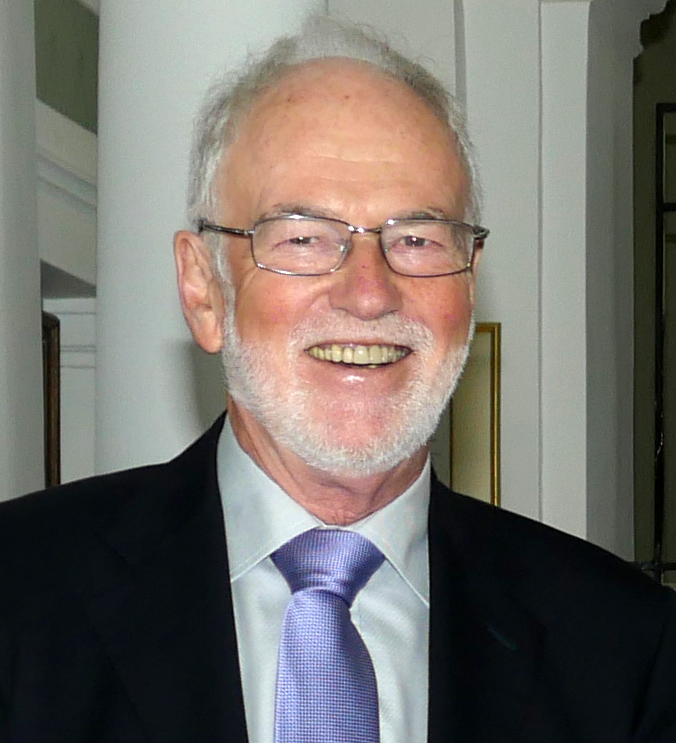
Tim Bowles attended Midhurst Grammar School in his home town in rural Sussex. After studying mathematics and sciences, he went on to the University of Newcastle upon Tyne, where he graduated in Psychology and Philosophy in 1965. For the following six years he worked as an experimental psychologist, initially working on road safety at the Road Research Laboratory and subsequently on human factors at Post Office Telecommunications (later BT).
He started his career in market research when he joined Bill Schlackman’s research company in 1971. Over the next seven years he built up a group of researchers with a strong reputation in studies involving close integration of qualitative and quantitative methods and a client base that included consumer goods and the public sector.
In 1978 he was approached by the AGB Group to manage their ad hoc research arm, RSGB and remained at AGB for eight years. For the last five of those years he took responsibility for AGB’s core UK consumer panel business and led the team that made major changes to data collection and analysis in the face of stiff competition in the syndicated data marketplace.
In 1986, relishing the opportunity to gain international experience, he joined the JWT Group as Managing Director (and later CEO) of the MRB Group, which comprised JWT’s market research interests in different parts of the world. In the following nine years, MRB Group grew steadily through development of the existing businesses and a series of acquisitions to extend international coverage. Meanwhile, JWT Group had been acquired by WPP, and MRB was eventually absorbed into the newly formed Kantar Research.
In 1995, Tim joined Chicago based IRI (Information Resources Inc) to run its newly formed European business, marketing supermarket scanning data and analysis in direct competition with A.C.Nielsen, the dominant global supplier of retail data at that time. Over the following eight years, he led the team that built a retail data business that rivalled Nielsen in Europe, and became President of all the IRI businesses outside the USA.
On his 60th birthday in 2003, he retired from IRI, with the vague intent to become a (very) mature mountain guide. Somehow, that never quite worked out and over the next five years, he performed interim senior management roles in NPD (Retailer Strategy), Synovate (CEO Western Europe) and TNS (COO North America). He stopped paid work in 2009, by which time he was too old to be a mountain guide.
He was a Fellow of the MRS and served on the Research and Development Committee, as well as teaching on MRS courses and at the Summer School. He served for many years on the Council of AMSO (Association of Market Survey Organisations) and was responsible for the annual industry statistics.
Outside the market research industry, he served on the council of the Marketing Group of Great Britain, both as Secretary and Chairman. He served as Trustee on the Management Council of OXFAM and on the board of CPRE (Campaign to Protect Rural England), where he steered a major review of the charity’s mission and corporate identity.
He is a lifelong mountaineer and a member of the Alpine Club.
Tim Bowles
27th January 2020
Interviewed at home by Graham Woodham
Editor: Paddy Costigan
Book Choice: Raymond Carver, Where I am calling from
Get the latest MRS news
Our newsletters cover the latest MRS events, policy updates and research news.


